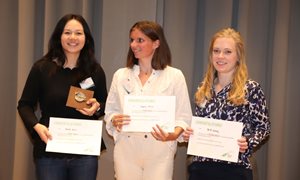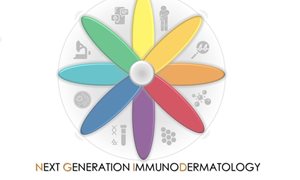 The collection and interpretation of genetic data have not been fully standardized. This means that patients cannot optimally benefit from the wealth of genetic data available for diagnosis and personalization of treatment. ZonMw granted an ambitious project to promote large scale (re)use of all human genomic data in research and healthcare by implementing the FAIR principles for genomics data, i.e. to improve Findability, Accessibility, Interoperability, and Reusability of genetic data.
The collection and interpretation of genetic data have not been fully standardized. This means that patients cannot optimally benefit from the wealth of genetic data available for diagnosis and personalization of treatment. ZonMw granted an ambitious project to promote large scale (re)use of all human genomic data in research and healthcare by implementing the FAIR principles for genomics data, i.e. to improve Findability, Accessibility, Interoperability, and Reusability of genetic data.
Peter-Bram ’t Hoen, theme Nanomedicine, further explains that the project will deliver standard operating procedures and best practices for the capture of genetic data, metadata (data about the data, such as the sequencing and analysis protocols) and provenance (who produced the data and what are the conditions under which the data may be (re)used). He further stresses that the “A” in FAIR does not stand for “freely accessible to anyone”. The conditions under which the data will be made available for reuse will need to guarantee the privacy of patients and have to be in line with the General Data Protection Regulation (GDPR). In the project, Radboudumc will be mainly concentrating on harmonization and removal of ambiguity of the data. The meaning of the data should be clear for researchers, clinicians or even computers, irrespective of the center where the data were generated.
The project was funded through ZonMW’s programs Personalized Medicine and Goed Gebruik Geneesmiddelen (effective use of medicine). All university medical centers in the Netherlands participate, but also stakeholders from patient organizations and professional societies such as the Vereniging Klinische Genetica Nederland and the Nederlandse Vereniging voor Pathologie.
Related news items

Renee Salz wins prize for best presentation
10 May 2022 Renee Salz won the award for best oral presentation during the Rolduc genetics retreat, organized by the Dutch and Belgian Societies of Human Genetics in Brugge. Her presentation was titled "Variant effect prediction based on long read transcriptomes". go to page
Large NWA ORC grant awarded for national skin research: Next Generation ImmunoDermatology
23 March 2022Research for better treatment methods for chronic skin diseases.
go to page
Young Investigator Poster Award at ESHG 2020 for Anouk Verboven
18 June 2020 The Best Poster in Basic Research was awarded to Anouk Verboven, PhD student at the Department of Human Genetics and at the CMBI. go to page
MetaDome highly accessed
7 May 2020MetaDome was recently recognized as one of the most accessed articles of 2018-2019 in Human Mutation. The MetaDome was a project developed by Laurens van de Wiel, Christian Gilissen, and Gert Vriend.
go to page
Front cover Human Mutation
21 August 2019The MetaDome web server build to interpret genetic variants based on genetic tolerance and homologous protein domains is featured on the Cover of Human Mutation. MetaDome was developed by Laurens van de Wiel, Coos Baakman, Daan Gilissen, Joris Veltman, Gert Vriend and Christian Gilissen,
go to page
Publication in Human Mutation Using homologous relationships of protein domains in the human genome to interpret genetic variation
4 September 2017This publication is part of the PhD project of Laurens van de Wiel and shows how homologous protein domain relations may be used to interpret normal and pathogenic variation at a much finer scale than previously possible.
go to page